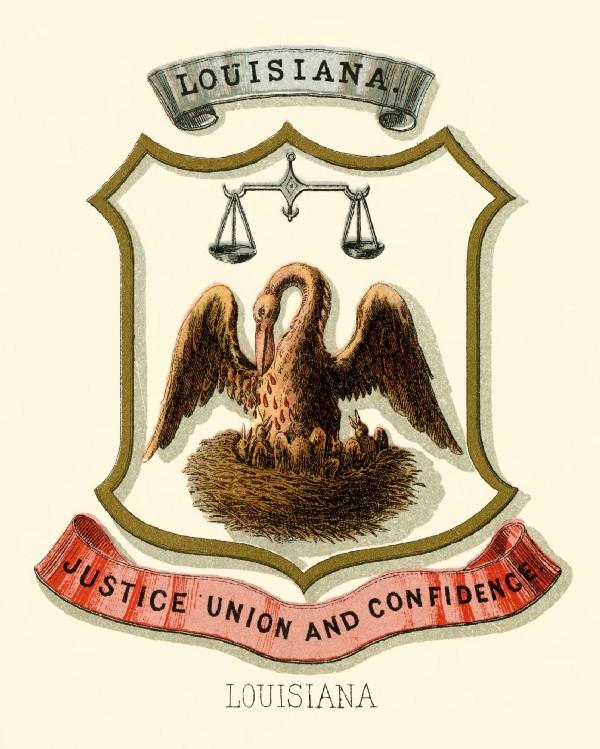When “Ambiguity” Can Mean Life in Prison
A Louisiana man’s request for a “lawyer dog” was deemed unclear by the state’s Supreme Court.

Leaf through the pages of any lawsuit and you’ll likely find an argument of ambiguity. Vagueness and overbreadth are so often at the core of contentious legal disputes, it’s easy to forget that these concepts aren’t just a highfalutin thought experiment for lawyers — claims of ambiguity can and do cost defendants their shot at freedom and constitutional guarantee of fairness.
Such was the case for 24-year-old Warren Demesme of New Orleans, who has been held in pretrial detention since his arrest two years ago. Demesme’s lawyers argue that his constitutional rights were violated when, after his arrest, police ignored his request for a lawyer:
“If y’all, this is how I feel, if y’all think I did it, I know that I didn’t do it so why don’t you just give me a lawyer dog, cause this is not what’s up,” Demesme told the police during his interrogation.
On Friday, the Louisiana Supreme Court denied Demesme’s request that the court review a lower court’s finding that this phrase is only an “ambiguous” reference to asking for counsel, and that his rights were not violated. Concurring in the denial of review, Justice Scott Crichton writes that “the defendant’s ambiguous and equivocal reference to a ‘lawyer dog’ does not constitute an invocation of counsel that warrants termination of the interview.”
Demesme is facing charges of first-degree rape and indecent behavior with a juvenile under 13; if convicted at trial of the rape charge, he faces a mandatory life sentence.
Along with a brief flurry of dogs-in-suits memes, the court’s decision unsurprisingly attracted derision from the legal community. David Carroll at the Sixth Amendment Center tells In Justice Today that the decision “shocked” him. Even though Louisiana has a well-documented history of trampling the rights of defendants, particularly poor, black defendants, the court’s claim of alleged ambiguity in the face of a well-known vernacular word — dog — comes across as far-fetched and baldly discriminatory.
As Elie Mystal at Above the Law points out, courts, “even in Louisiana,” are rarely “so obvious about their racial animus.” And any shred of ambiguity in the phrase “just give me a lawyer dog” was introduced by the court’s own dubious omission of a comma between “lawyer” and “dog” in the transcript, Reason’s Ed Krayewski reminds readers.
In spite of the shock, Demesme’s case is a potent reminder that many lower courts tend to err on the side of law enforcement when it comes to claims of ambiguity. In a 2010 dissent in a case examining what constitutes a criminal suspect’s ceding of the Fifth Amendment Miranda right to have counsel present during an interrogation, U.S. Supreme Court Justice Sonia Sotomayor points out this phenomenon.
Numerous lower courts have “erroneously … rejected as ambiguous an array of statements whose meaning might otherwise be thought plain,” writes Sotomayor. In a footnote, she chronicles an array of phrases that lower courts have classified as “ambiguous” when it comes to a suspect invoking the right to have counsel present during an interrogation, ranging from “I don’t even want to, you know what I’m saying, discuss no more about it, man,” to “… if you’re implying that I’ve done it, I wish to not say any more.”
This gray area of legal ambiguity when it comes to arrests and interrogations should come as no surprise. There are many examples of how this process bewilders and criminal suspects; consider the many instances in which defendants have falsely confessed to a crime after hours of interrogation. The vast majority of Americans don’t possess the legal prowess to deftly navigate their arrest and interrogation in a way that protects their rights.
In their attempt to protect themselves while undergoing the stress of being detained by the police, it makes sense that equivocal phrases such as, “I think I need a lawyer,” or “Maybe I should talk to a lawyer,” arise so often. If the Louisiana Supreme Court’s decision is any indication, the courts aren’t eager to make room for defendants when it comes to their confusion — even when as in Demesme’s case, the request for counsel was crystal clear.
